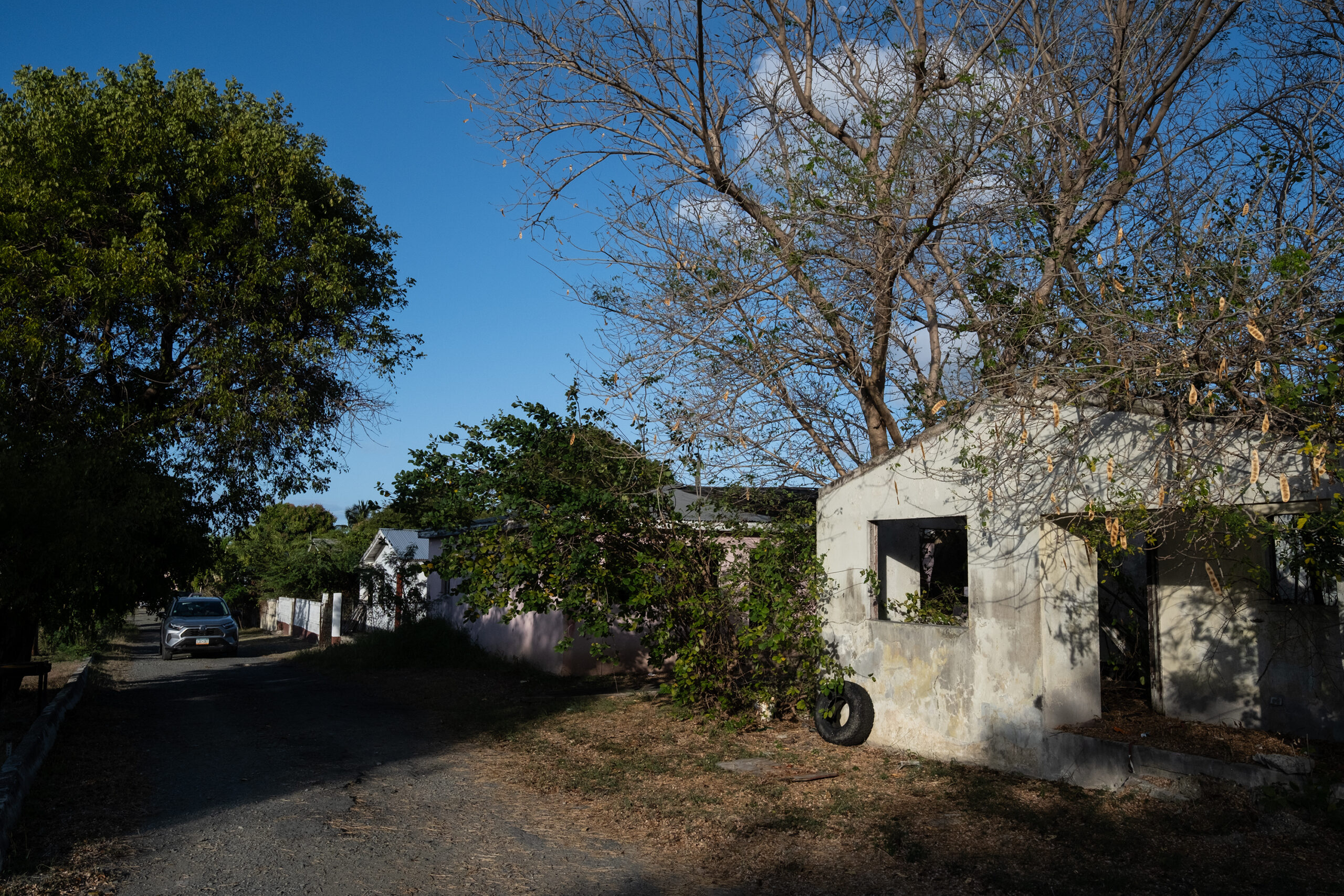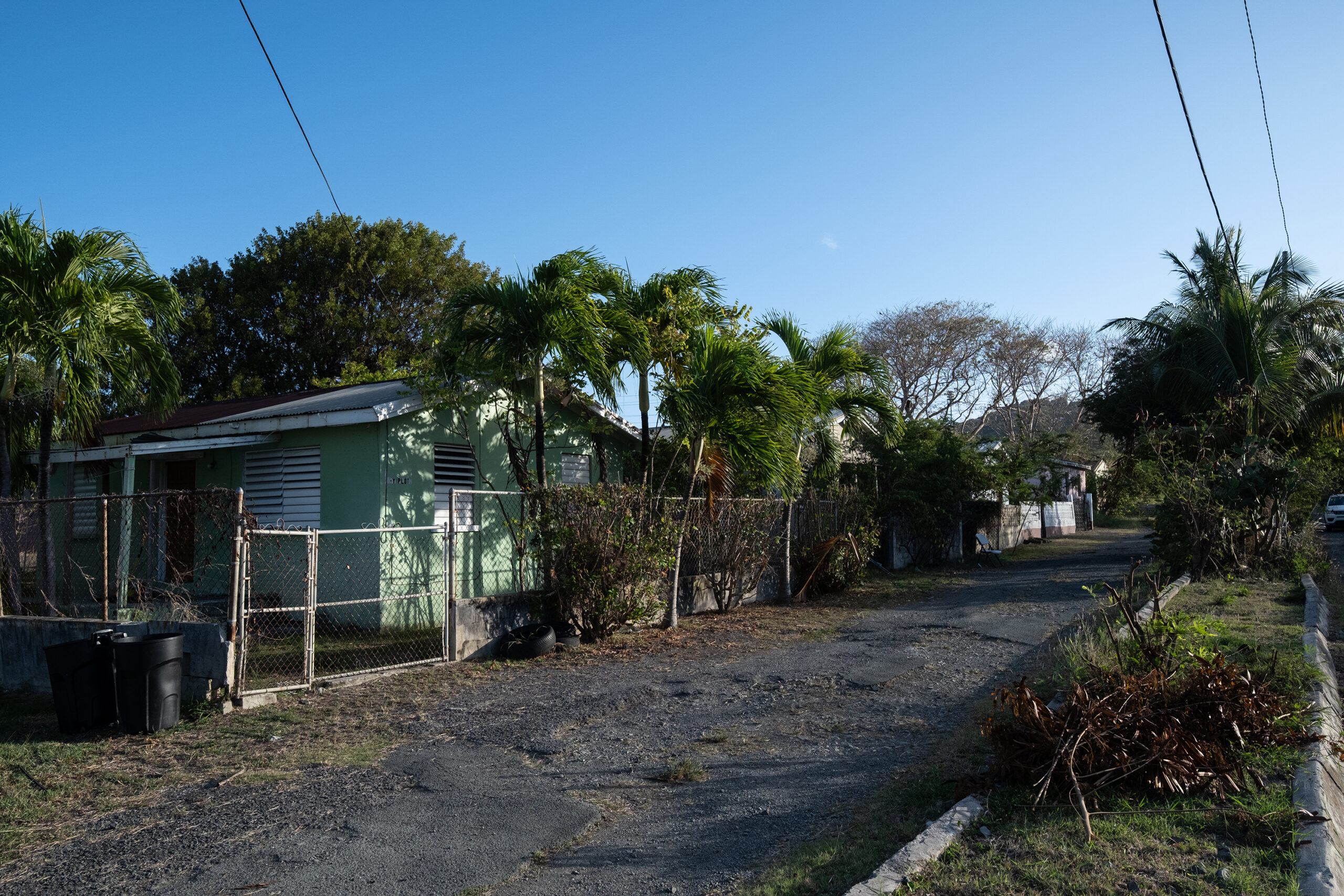
Homeowners in LBJ Gardens on St. Croix have just over two weeks to decide whether they want their properties appraised by the V.I. Housing Finance Authority as part of a proposal to buy them out of the homes where their families have lived for generations.
Luz Fulgence said her LBJ Gardens home has been in the family for more than six decades.
“I own it and I don’t owe nothing on it,” she said.
In that time, her son Alejandro Torres III said, the neighborhood and the area around it has changed dramatically. Torres said the V.I. Water and Power Authority’s Richmond Power Plant wreaked havoc on residents’ health and homes. Heavy Waste Management Authority trucks servicing the nearby pump station took a toll on the neighborhood’s two-lane boulevard. A marina sprang up on one side. Then, earlier this year and without warning, the government began demolishing the abandoned apartments next door.
The surprise demolition prompted several meetings between residents and VIHFA leadership about the future of the neighborhood and the people who live there — most recently on March 24.
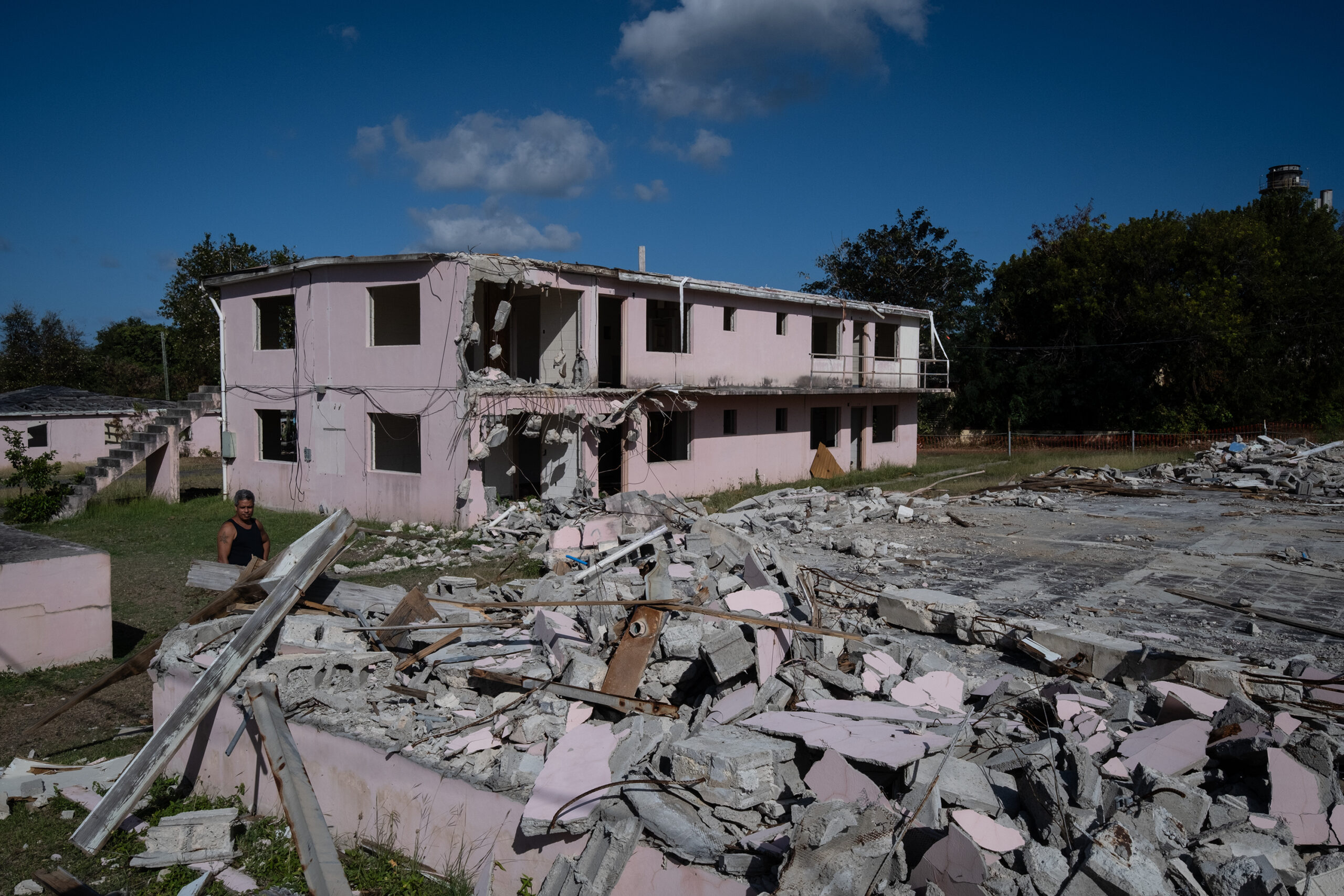
Residents then received a letter on March 27 informing them that, “after carefully reviewing applicable regulations, VIHFA has identified opportunities that may lead to the buyout or acquisition of eligible property.” The letter stated that a buyout requires the community’s collective agreement and participation and acquisitions do not.
“In both cases, whether through buyout or acquisition, the properties will be subject to demolition to ensure the land is appropriately repurposed for green space or mitigation projects, thereby advancing environmental and community benefits,” according to the letter.
It’s not clear what regulatory mechanism VIHFA intends to use for the proposed buyouts.
“At this time, we are not sharing additional details regarding the applicable regulations referenced in the letter, as they remain under internal review and are subject to further evaluation and approval,” VIHFA spokesperson Nikya Kirnon said in a statement to the Source. “Our focus remains on clear communication with the residents and working toward a thoughtful and informed resolution. As such, we do not have any further comments at this time and will share updates as soon as more information becomes available.”
Homeowners have until April 28 to respond to VIHFA to say whether they want a government appraiser to evaluate their property. After decades of development on all sides, however, some residents are worried about getting a fair offer.
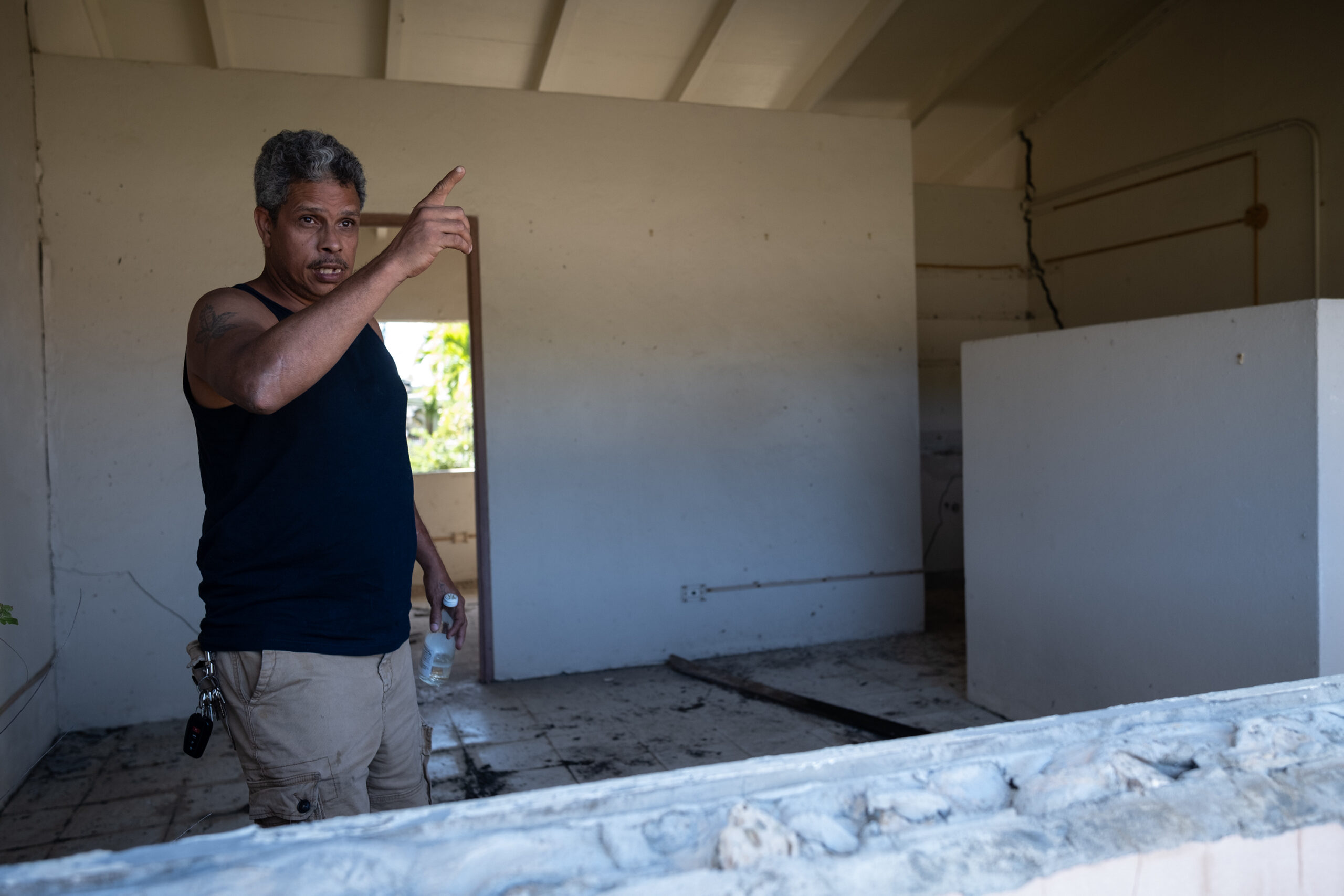
The once-vibrant neighborhood is a stone’s throw from the Richmond Power Plant. In between are vacant apartments and an abandoned building once occupied by the former Housing, Parks and Recreation Department. Dilapidated emergency apartments and an aging V.I. Waste Management Authority pump station — set to be replaced and moved to a site east of the power plant — separate the homes and the sea. A shipbuilding marina, which secured a Major Coastal Zone permit in 2019, abuts the neighborhood to the west.
The LBJ Gardens of today is a far cry from the neighborhood Spanesia Anderson grew up in.
“Now growing up as a youth, I watch a lot of my elders — them in here — deteriorate because of WAPA. We’re dealing with WAPA for years,” she told the Source this week. First it was black smoke billowing from the power plant. “That’s why nobody in here ain’t got no cistern right now.”
Then came the build out of propane storage tanks.
“Every single one of these house shift,” Anderson said. “Everything crack.”
Anderson questioned whether the government appraisers will take into account the damage to their properties, which they say the government caused and which residents had to repair themselves.
Conditions only worsened a few months ago when a contractor began demolishing the VIHFA-owned apartments next to the neighborhood, alarming residents and sparking fears of cistern contamination and other public health hazards from the unsecured site.
“No one notified us,” Torres recalled. “No one said nothing about it. We just heard noise, came outside, and they were knocking down the buildings.”
Torres said that continued for a few days until some residents got in touch with members of the 36th Legislature, who contacted VIHFA about pausing the demolition. Residents later met with leadership from the agency in February.
“The meeting was to let us know that the demolition was going to continue,” he said. “And we spoke up about it, and we said we don’t agree with it. It’s getting us sick.”
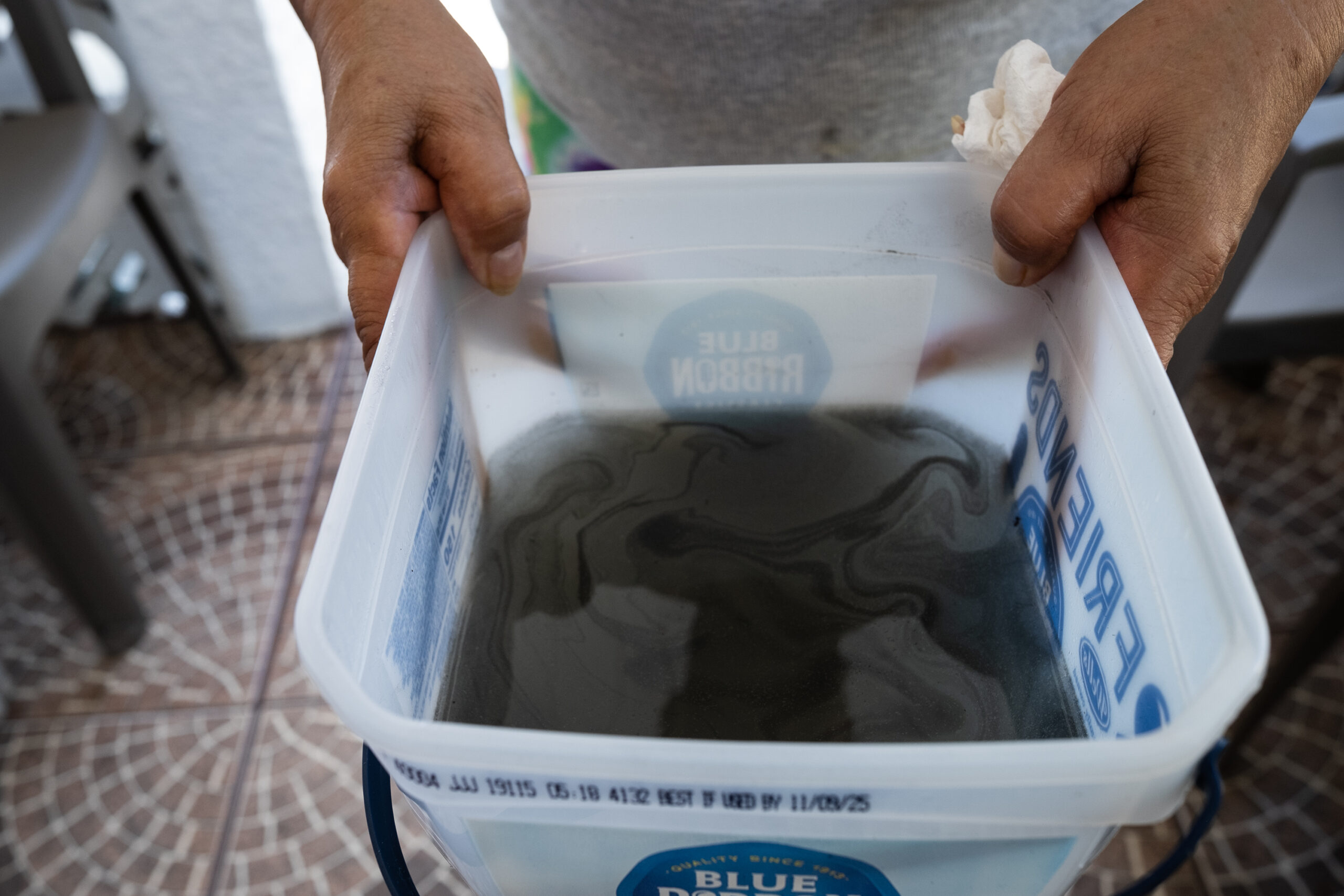
On Monday, VIHFA said the demolition will remain on hold until further notice.
“Fencing and signage have been installed by the contractor. Additionally, the contractor is implementing mitigation measures to have the debris watered regularly as outlined in his contract,” the agency said in a statement.
Lawmakers grilled VIHFA leadership about the demolition during a February Senate Disaster Recovery, Infrastructure and Planning Committee hearing, during which the agency’s Chief Operating Officer and Chief Disaster Recovery Officer, Dayna Clendinen, said their contractor jumped the gun.
“My question has always been: why haven’t these residents been given an opportunity to move first, before any consideration of demolition even started?” Sen. Hubert Frederick asked. “I know this guy got ahead — the contractor got ahead — but still, why were they still not moved? Did anyone ever consider that?”
Clendinen said that wasn’t considered.
“I’m not understanding how the contractor ‘got ahead’ of you, Ms. Clendinen,” Sen. Novelle Francis Jr. said later. “Are you saying that they actually started the project without authorization or permission?”
Clendinen said the contractor was given a notice to proceed in late January but that before starting any demolition work, they were supposed to install fencing and signage and to provide VIHFA with a work schedule. Instead, they began demolishing over the weekend.
“We had already had in position, to begin [on] Monday, information to the public, to say ‘hey, this will begin’ — a date, time, et cetera,” she said. “So that is what I mean when I said the contractor got ahead of our notification to … LBJ residents.”
Amid questioning by Sen. Marise James, Clendinen said VIHFA was reviewing its acquisition options.
“We just need to be creative … we can’t displace people and then not help them,” James said. “And the property is valuable — it’s priceless, to them.”
Senate Majority Leader Kurt Vialet noted that the Legislature reached out to VIHFA about this exact issue a year ago.
“And this letter is dated March 18, 2024,” he said. “So I’m a bit perplexed when I hear you answering, ‘well, we, we looking at this.’ You didn’t get this letter?”
Clendinen noted that she responded to the letter in question.
“But my direct question is: it was already asked a year ago. So why are we having a discussion now, in reference to relocation or possible funding source, when the question was asked before you even began the demolition as to, these are potential problems and they need to be addressed,” he said. “So you start the demolition, and then you get complaints from the residents, and then the demolition stop. So we now at a standstill, and now you’re revisiting exactly what was already requested from one year ago. How does that work?”
